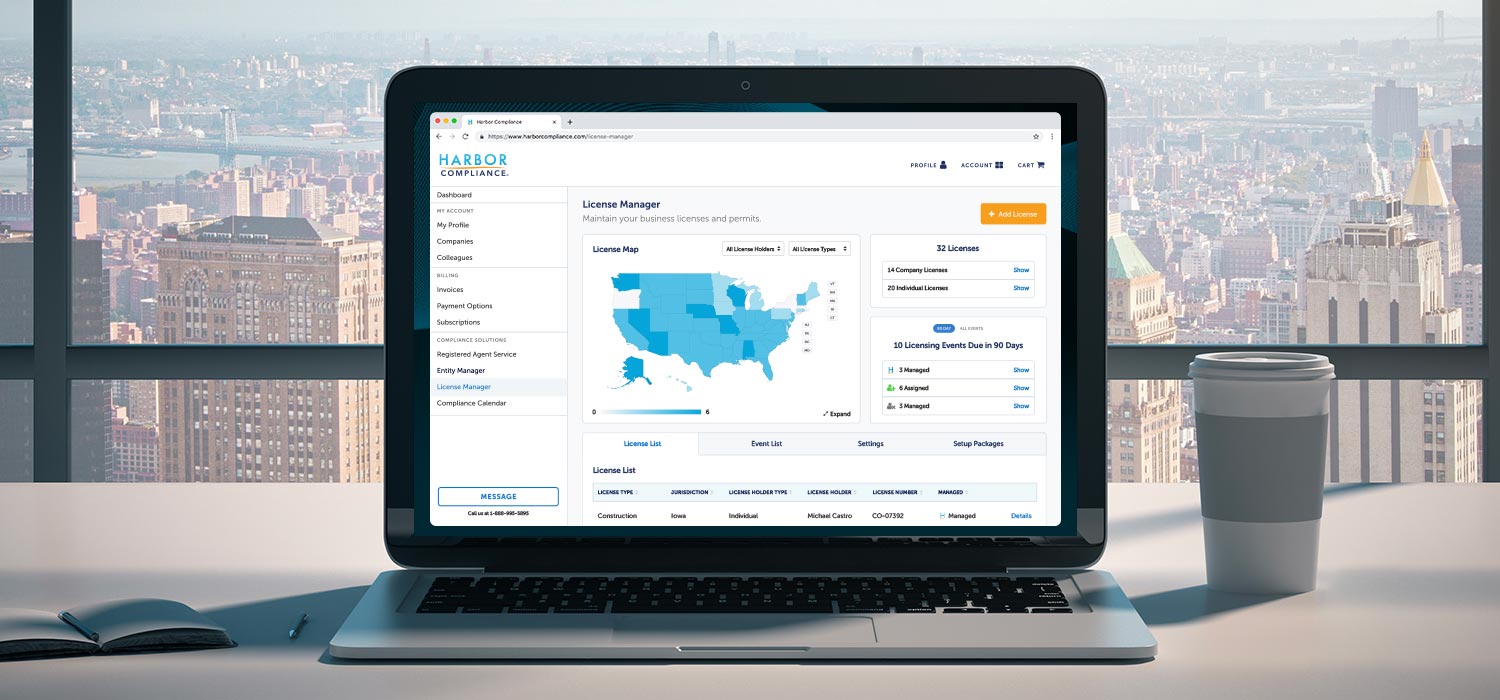
Pennsylvania Engineering Industry Licensing

Licensing requirements for engineering industry firms and individuals in Pennsylvania.
This page provides an overview of engineering industry licensing in Pennsylvania for individuals and firms. You will find state requirements, application fees, filing instructions, and more. For assistance with licensing, please contact us to learn about our software and managed license services.

Company Licenses
Pennsylvania Engineering Company Licenses
Pennsylvania Engineering Firm License
Not required
Engineering Firm licensure is not required on the State level in Pennsylvania.
Pennsylvania does not license firms, but requires that engineering companies have at least one licensed engineer on staff. Name registration is required for firms with some form of "Engineer" in the name. You must receive board approval prior to foreign qualification.
More information: Pennsylvania Registration Board for Professional Engineers, Land Surveyors and Geologists| Law: | |
| Eligible Entity Types: |
|
| Ownership Requirements: | Business Corporations:
Professional Corporations:
Limited Liability Companies:
Partnerships:
|
Pennsylvania Land Surveying Firm License
Not required
Land Surveying Firm licensure is not required on the State level in Pennsylvania.
Pennsylvania does not license firms, but requires that land surveying companies have at least one licensed land surveyor on staff. Entities with some form of "Survey" in their name will be required to file a fictitious name registration with the board. You must also receive board approval prior to foreign qualification.
More information: Pennsylvania Registration Board for Professional Engineers, Land Surveyors and Geologists| Law: | 63 Pa. Const. Stat. § 153; 15 Pa. Const. Stat. § 1303 |
Individual Licenses
Pennsylvania Individual Engineering Licenses
Pennsylvania Professional Engineer License
Initial Registration
| Filing Method: | |
| Agency Fee: | $50 |
Reciprocal Registration
| Filing Method: | |
| Agency Fee: | $50 |
Registration Renewal
| Filing Method: | |
| Agency Fee: | $100 |
| Due: | By September 30 of odd-numbered years. |
Pennsylvania Professional Geologist License
Initial Registration
| Filing Method: | |
| Agency Fee: | $50 |
Reciprocal Registration
| Filing Method: | |
| Agency Fee: | $50 |
Registration Renewal
| Filing Method: | |
| Agency Fee: | $100 |
| Due: | By September 30 of odd-numbered years. |
Pennsylvania Professional Land Surveyor License
| Agency: | Pennsylvania Registration Board for Professional Engineers, Land Surveyors and Geologists |
Initial Registration
| Filing Method: | |
| Agency Fee: | $50 |
Reciprocal Registration
| Filing Method: | |
| Agency Fee: | $50 |
Registration Renewal
| Filing Method: | |
| Agency Fee: | $100 |
| Due: | By September 30 of odd-numbered years. |
Learn about engineering licensing in other states:
Design Firm - Engineering firm registration is sometimes grouped with architecture and land surveying on a single “design firm” application form.
EI (Engineering Intern) - A term also used to describe an Engineer in Training.
EIT (Engineer in Training) - A professional designation granted upon having completed at least 3 years of school at an ABET-accredited university and having passed the FE exam.
FE (Fundamentals of Engineering) - An exam testing on basic engineering principles that is required to become an engineer in training.
PE (Professional Engineer or 'Principles and Practice in Engineering') - Means either Professional Engineer or refers to the Principles and Practice in Engineering exam that is a prerequisite for an engineering license.
Reciprocity - When a licensed engineer in one state can provide documentation (often an NCEES Record) to more easily apply for a license in another jurisdiction.
Accreditation Board for Engineering and Technology (ABET)
Accrediting board that sets standards for university programs in a variety of applied science disciplines.
American Council of Engineering Companies (ACEC)
Engineering, architecture, and land surveying advocacy group.
American Society of Civil Engineers (ASCE)
Organization that provides continuing education, professional conferences, and advocacy efforts to the civil engineering community.
American Society of Mechanical Engineers (ASME)
Mechanical engineering organization that focuses on education and professional development.
Engineering Accreditation Commission (EAC)
Reviews accreditation requirements and makes final decisions regarding the accreditation process.
National Council of Examiners for Engineering & Surveying (NCEES)
Develops, administers, and scores the exams used for engineering licenses.
National Society of Professional Engineers (NSPE)
NSPE is an advocacy group for professional engineers.






